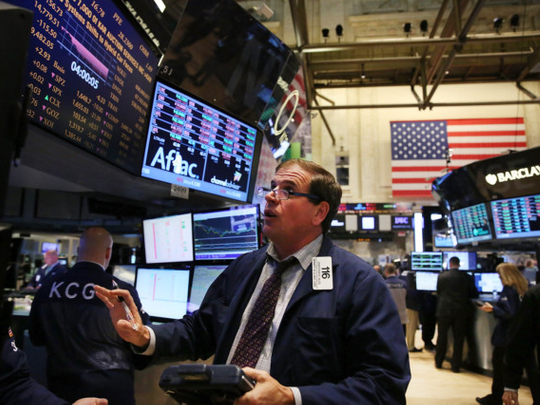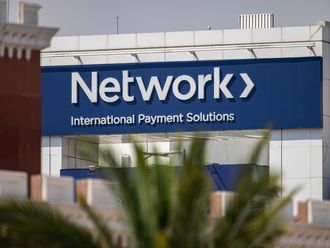
Dubai: Global financial markets are waiting with bated breath on the outcome of the political impasse in Washington on US government shutdown. With a few days left for the government to reach a decision on the debt ceiling on October 17, any failure could have disastrous consequences for global markets and economies.
With the debt ceiling deadline drawing closer, the pressure is being felt across the GCC markets and economies. Apart from the equity market mayhem that could follow the default, economists and analysts fear wider implications in terms of higher interest rates, loss of confidence in dollar denominated assets and a surge in prices arising from imported inflation as the dollar slides in value.
“A protracted period of default — highly unlikely — would lead to massive uncertainty and an economic slowdown which would also have adverse global repercussions. Linkages to the GCC would be on multiple fronts, ranging from the impact of a US slowdown weighing on oil prices, financial market spillovers, and so on,” said Giyas Gokkent, chief economist of National Bank of Abu Dhabi.
Gulf central banks and sovereign wealth funds which are big investors in US treasuries are likely to feel the pressure of eroding confidence in dollar.
Safe haven
Saudi Arabia, which is a major holder of US government bonds, could be heavily impacted in case of a debt default. If a default happens, international markets will turn topsy-turvy due to large scale global investments in US treasury bonds, traditionally considered a safe haven investment.
“Absolute value of US bonds held by sovereign wealth funds and central banks would decline. Repo market which is the primary source of short-term funds for banks, widely uses treasury securities as collateral. Treasury default has the potential to stifle and freeze the banking system,” said M.R Raghu, senior vice president-research at Kuwait Finance Centre.
“In GCC, the prevailing low interest rate scenario had led banks to seek other ways such as investment and foreign exchange to boost their income. Market turmoil would hit the banks hardest,” said Raghu.
Analysts say the economic toll GCC economies could be heavy in the event of a US default and a sharp decline in the value of dollar. “The dollar has already weakened because of fiscal tension and expectation that monetary policy may stay loose a while longer, but the magnitude of the weakening has not been of a scale that would lead to a large rise in inflation. A default scenario could alter that, but is not the base case for most observers,” said Gokkent.
With the exception of Saudi central bank, all five Gulf central banks are yet to comment on the possibility of a US default and its consequences.
Saudi’s central bank governor Fahad Al Mubarak told reporters earlier this week that the Kingdom is not overly concerned about a potential debt default since the US government has previously managed to resolve its lockdown issues.
Catastrophic
Although many would like to believe in Saudi central bank’s confidence in US government’s ability to manage the current crisis, analysts fear alternate scenarios could be catastrophic for the global economy. Many analysts are comparing a US government default to Lehman Brothers’ collapse in mid-September 2008. The $12 trillion (Dh44 trillion) of outstanding government debt is 23 times the $517 billion Lehman owed when it filed for bankruptcy.
“October 17th is when a technical default occurs in the US if an agreement is still not reached. At this point the US would be put in a position to pay ‘interest only’ and not the principal on its debt. This has the potential to be catastrophic for markets and risk perception generally around the world. We would advise staying sidelined for now on global markets until this is fully played out,” Arjuna Mahendran Chief Investment Officer of Emirates NBD Wealth management wrote in a note.
The US reached its allowed debt limit of almost $16.7 trillion, a cap on the amount the government can borrow in May and has since been relying on various extraordinary measures to keep paying the bills.
“Once Treasury has exhausted its resources, we do not think it can take any additional steps to prevent the debt ceiling from becoming binding. Although Treasury has the authority to raise cash through the sales of its semi-liquid assets, which include gold, student loans, financial assets acquired during the financial crisis, and foreign currencies, we do not believe that such measures will be taken as an alternative to raising the debt ceiling,” JP Morgan wrote in a research note.
Confidence
Analysts say the failure of US government, the world’s largest borrower to pay its debt is certain to undermine people’s confidence in the global financial system that could drive the US and global economies into prolonged recession.
A default could mean every aspect of US government finances taking a beating and driving down people’s confidence in US dollar denominated assets. Out of the $16.7 trillion of bonds the US currently has outstanding more than 30 per cent is held by the social security fund, the second biggest holder of Treasuries (about 12 per cent) is the Federal Reserve, which has 91 per cent of its assets backed by US government debt.
Foreign governments and central banks have significant Treasury holdings as reserves. China holds $1.277 trillion in US Treasury bonds, second only to Japan. “Safeguarding the debt is of vital importance to the economy of the US and the world,” Vice Finance Minister Zhu Guangyao said, according to the official Xinhua News Agency.











